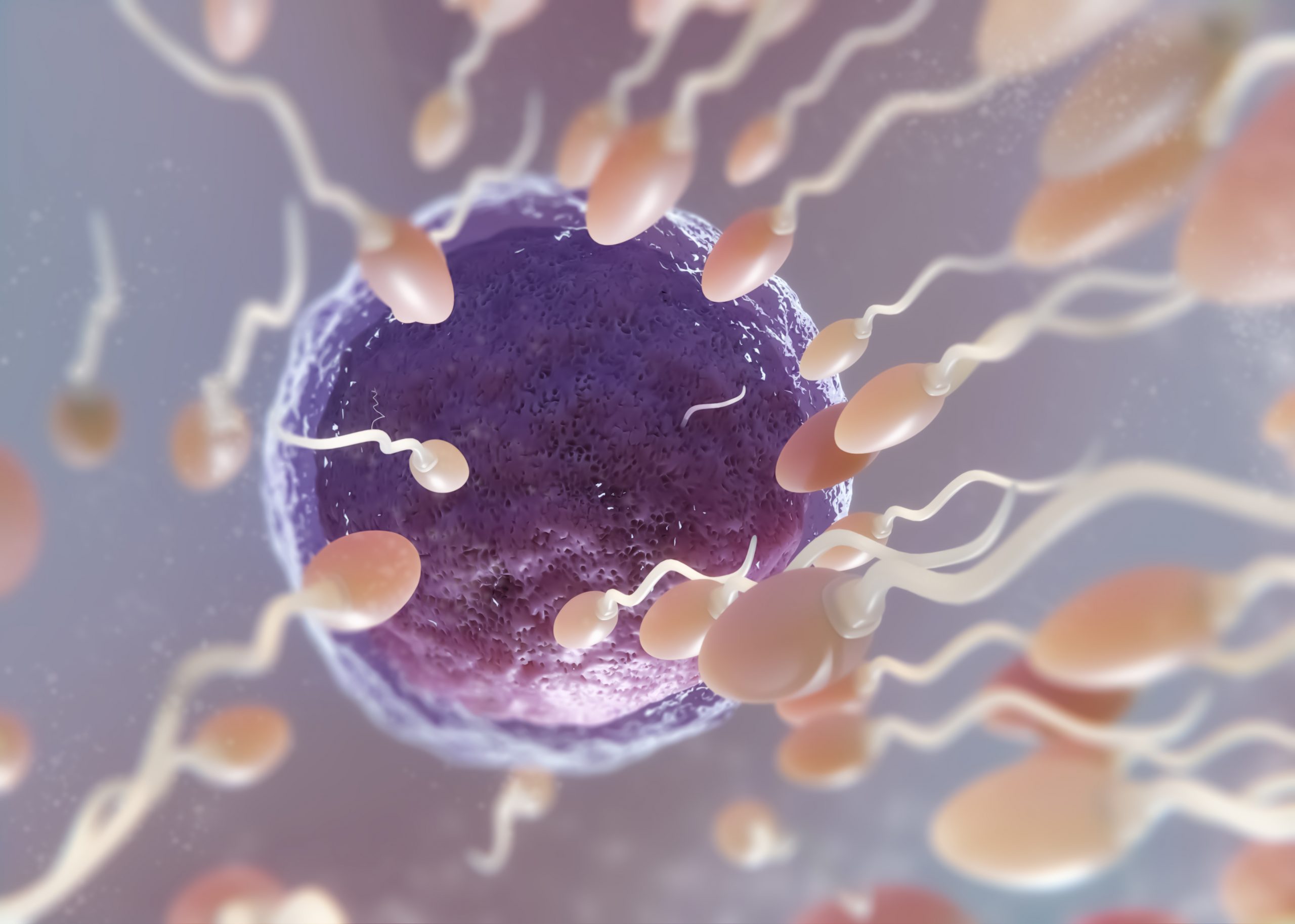

New research sheds light on the fundamental scientific notion that mitochondrial DNA — the particular genetic code stored in the organelle that serves as the powerplant for all cells in the body — is only passed down from mother to child.
Oregon Health & Science University and other universities collaborated on the study, which was published today in the journal Nature Genetics.
Scientists have long known that mitochondrial DNA, or mtDNA, is derived entirely from human egg cells, implying that only the mother provides the genetic code carried by hundreds of mitochondria required for energy production in every cell in the body.
It was previously thought that paternal mtDNA was removed shortly after a sperm unites with an oocyte, or developing egg, during fertilization, presumably via an immune-like search-and-destroy reaction.
The study discovered, however, that while mature sperm contain a modest number of mitochondria, they lack intact mtDNA.
“We found that each sperm cell does bring 100 or so mitochondria as organelles when it fertilizes an egg, but there is no mtDNA in them,” said co-author Shoukhrat Mitalipov, Ph.D., director of the Center for Embryonic Cell and Gene Therapy at OHSU, and professor of obstetrics and gynecology, molecular and cellular biosciences, OHSU School of Medicine, OHSU Oregon National Primate Research Center.
Researchers discovered that sperm cells not only lack intact mtDNA, but also a protein required for mtDNA maintenance known as mitochondrial transcription factor A, or TFAM.
Scientists aren’t sure why sperm aren’t allowed to contribute mtDNA, but Mitalipov believes it’s because sperms expend a lot of mitochondrial energy in their biological impulse to fertilize an egg. As a result, it would accumulate mutations in mtDNA. Oocytes, which are forming eggs, receive energy mostly from neighboring cells rather than their own mitochondria, and hence have comparatively pure mtDNA.
“Eggs pass on really good mtDNA at least partly because they don’t use mitochondria as a source of energy,” Mitalipov said.
The 100 or so organelles in sperm are dwarfed by the hundreds of thousands of mitochondria anchored in each egg cell, each of which contains the 37 genes in mitochondrial DNA. Only maternal mtDNA is thought to give an evolutionary advantage by minimizing the likelihood of mtDNA mutation accumulations that cause sickness in progeny.
Because mitochondria control respiration and energy production in every cell of the body, mtDNA mutations can result in a variety of potentially deadly illnesses affecting organs with high energy demands, including as the heart, muscle, and brain.
Mitalipov pioneered a technology called mitochondrial replacement treatment to replace mutant mtDNA through in vitro fertilization using healthy mtDNA from donor eggs to help mothers prevent passing on known mtDNA problems to their children.
Because Congress has barred the Food and Drug Administration from overseeing clinical trials employing the method in the United States, clinical trials are being undertaken elsewhere, including in the United Kingdom to prevent disease and in Greece to treat infertility.
According to the researchers, the new discovery has significant implications for human fertility and germ cell therapy.
“Understanding the role of TFAM during sperm maturation and its function during fertilization may hold keys to our ability to treat certain infertility disorders and increase the efficiency of assisted reproductive technologies,” said corresponding author Dmitry Temiakov, Ph.D., a molecular biologist with Thomas Jefferson University in Philadelphia.
more recommended stories
 Chronic Pain Linked to CGIC Brain Circuit, Study Finds
Chronic Pain Linked to CGIC Brain Circuit, Study FindsKey Takeaways University of Colorado Boulder.
 New Insights Into Immune-Driven Heart Failure Progression
New Insights Into Immune-Driven Heart Failure ProgressionKey Highlights (Quick Summary) Progressive Heart.
 Microplastic Exposure and Parkinson’s Disease Risk
Microplastic Exposure and Parkinson’s Disease RiskKey Takeaways Microplastics and nanoplastics (MPs/NPs).
 Sickle Cell Gene Therapy Access Expands Globally
Sickle Cell Gene Therapy Access Expands GloballyKey Summary Caring Cross and Boston.
 Reducing Alcohol Consumption Could Lower Cancer Deaths
Reducing Alcohol Consumption Could Lower Cancer DeathsKey Takeaways (At a Glance) Long-term.
 NeuroBridge AI Tool for Autism Communication Training
NeuroBridge AI Tool for Autism Communication TrainingKey Takeaways Tufts researchers developed NeuroBridge,.
 Population Genomic Screening for Early Disease Risk
Population Genomic Screening for Early Disease RiskKey Takeaways at a Glance Population.
 Type 2 Diabetes Risk Identified by Blood Metabolites
Type 2 Diabetes Risk Identified by Blood MetabolitesKey Takeaways (Quick Summary) Researchers identified.
 Microglia Neuroinflammation in Binge Drinking
Microglia Neuroinflammation in Binge DrinkingKey Takeaways (Quick Summary for HCPs).
 Precision Oncology with Personalized Cancer Drug Therapy
Precision Oncology with Personalized Cancer Drug TherapyKey Takeaways UC San Diego’s I-PREDICT.

Leave a Comment